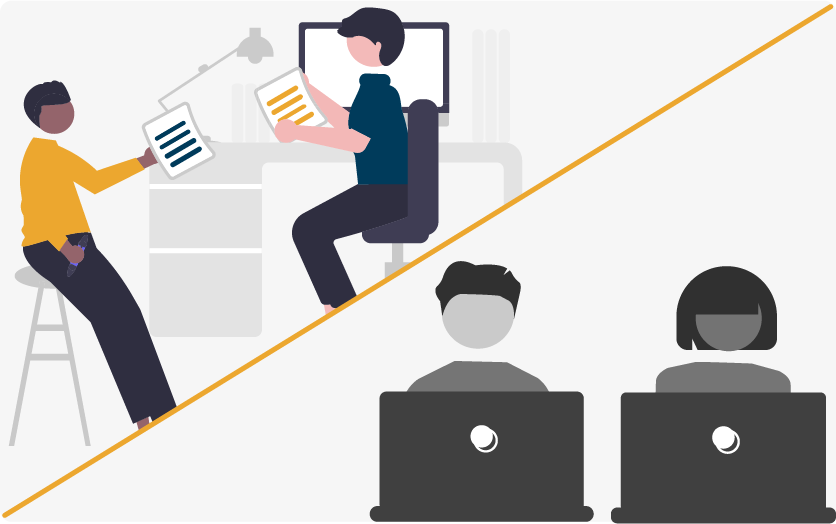2. Coaching Is Essential for Behavior Change
In the early days of agile, there was a common belief that agility could be achieved by implementing new processes and practices. Many organizations assumed that if they sent people to a class or a bootcamp for a few days to learn a specific agile framework, those people would just come back to work, impose the framework, and “Voilà!”
This approach caused a lot of transformations to stall. People equated agile with knowing a framework, or knowing how to conduct rituals, and they hadn’t thought through the deeper cultural and behavioral factors necessary for sustainable change.
Today, most organizations are aware that cultural and behavioral changes are crucial to agile transformation. But behavior change is hard, and it’s not something people can change overnight. Coaches can provide necessary support and accountability during the journey.
Initially, a coach can teach new skills and new ways of thinking. Over time, the coach will help individuals build their skill and provide accountability. Coaching is especially important for leadership behaviors. Developing self-awareness, self-management, and relationship management skills often require that leaders unlearn old ways of working and learn something new. Partnering with a coach can make the transition much smoother and easier.
3. Transformation Requires a System of Coaches
A full organizational agile journey requires a system of coaches because different types of coaching are needed in different areas and for different domains. An organization in pursuit of business agility needs coaches with a variety of specializations and those who can work at different levels of the organization.
In terms of scope, it’s important to bring in enterprise coaches who focus on organizational strategy and supporting senior leadership. At the same time, organizations need to bring in agile team coaches to support the execution of the strategy.
In terms of specialization, an organization will want to engage coaches with a variety of special skills or domain-specific work experience. These specializations might include product coaches, technical coaches, leadership coaches, people who can coach HR transformation or people who can coach finance transformation.
It’s important for coaches to have domain experience because that experience builds trust with the coachees. The coach can empathize better with the mindset shift that needs to happen among team members as they learn a new way to work.
4. Coaches Need More Than Agile Process Expertise
There's a lot of confusion in the industry about the experience and the credentials that coaches need. At ICAgile, we’ve defined the standard competencies necessary for Agile Team Coaches and Enterprise Agile Coaches. We’ve also developed comprehensive learning offerings in specializations such as Product Ownership, Agile Engineering and Agile HR.
There’s a common misconception that a coach only needs agile process expertise. In reality, a strong coach needs to have experienced an agile transformation before and to have developed the accompanying growth mindset, self-awareness, relationship awareness, situational awareness and personal leadership skills. In order to take an organization through the transformation journey, a coach needs to have been on a journey themselves and have empathy for the change they are asking others to undergo.
Coaches also need capabilities in facilitating and mentoring groups and individuals through conflict and towards high performance. Group process, group awareness and systems awareness are as important, if not more important, than having a command of the strategies, structures and processes conducive to sustainable agility.





